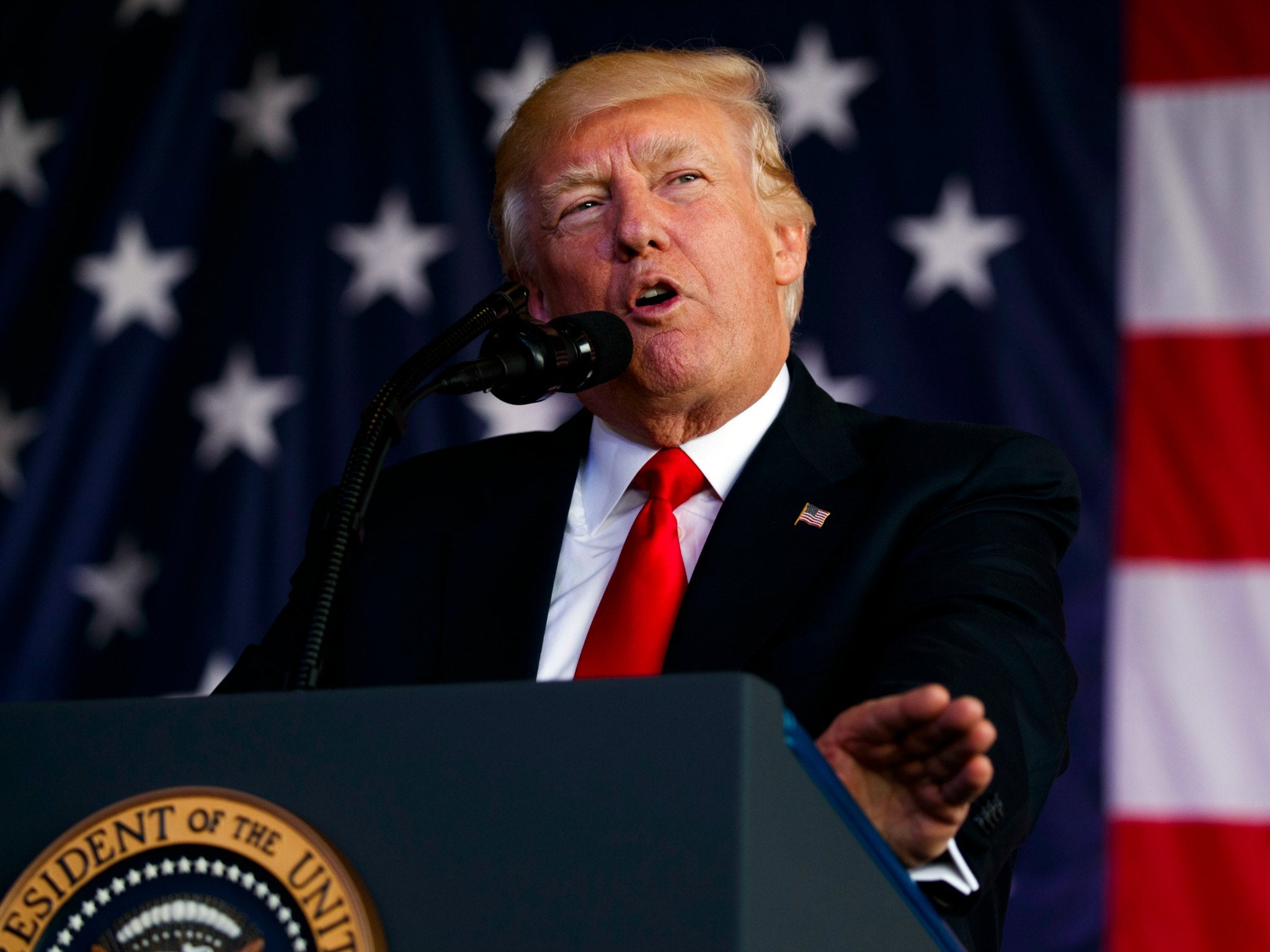US politicians challenge Donald Trump's multi-billion dollar Saudi Arabian arms deal
'The United Nations a number of human rights organisations documented a series of RSAF airstrikes on civilian targets including hospitals, markets, schools and a large funeral'

Your support helps us to tell the story
From reproductive rights to climate change to Big Tech, The Independent is on the ground when the story is developing. Whether it's investigating the financials of Elon Musk's pro-Trump PAC or producing our latest documentary, 'The A Word', which shines a light on the American women fighting for reproductive rights, we know how important it is to parse out the facts from the messaging.
At such a critical moment in US history, we need reporters on the ground. Your donation allows us to keep sending journalists to speak to both sides of the story.
The Independent is trusted by Americans across the entire political spectrum. And unlike many other quality news outlets, we choose not to lock Americans out of our reporting and analysis with paywalls. We believe quality journalism should be available to everyone, paid for by those who can afford it.
Your support makes all the difference.Donald Trump’s multi-billion dollar arms deal with Saudi Arabia could be held up by US politicians seeking to scrutinise its contents.
Members of both the US president’s Republican Party and rival Democrats in both Congress and the Senate are hoping to block the sale of the weapons and equipment.
Mr Trump signed the $110bn deal during a recent visit to Saudi Arabia.
“This package demonstrates, in the clearest terms possible, the United States’ commitment to our partnership with Saudi Arabia and our Gulf partners, while also expanding opportunities for American companies in the region, and supporting tens of thousands of new jobs in the US defence industrial base,” a White House statement said shortly afterwards.
But In a letter to the House Foreign Affairs Committee, Congressmen Ted Lieu, a Democrat and Republican Ted Yoho urged their colleagues to reconsider the sale of precision guided munitions (PGMs) to the oil rich Middle Eastern Kingdom.
They pointed out that former president Barack Obama’s administration had halted a planned sale of of PGM’s to Saudi Arabia in December, “due to concerns over the widespread civilian casualties in Yemen” and “significant deficiencies” in the Royal Saudi Arabian Air Force’s (RSAF) targeting capabilities”.
They said: “This decision was the result of an internal review launched after the United Nations and a number of human rights organisations documented a series of RSAF airstrikes on civilian targets including hospitals, markets, schools and a large funeral.”
They added that in March, The State Department had “reversed this policy without providing any justification for what had changed in its assessment.”
As a result they said it was incumbent of the committee to “exercise its oversight powers and to ask tough questions” of Mr Trump’s administration.
In the Senate meanwhile, Senator’s Chris Murphy, Al Franken and Rand Paul introduced a joint resolution of disapproval for the deal.
Under a provision of the Arms Export Control Act, they hope to block the sale of weapons and equipment to the Royal Saudi Air Force, a;though it represents only a portion of the total package.
However, they will have to wait for over a week before bringing their measure to the floor of the Senate.
Other Congressional leaders slammed the deal on account of Saudi Arabia’s’s human rights violations and export of extremist ideologies.
Senator Patrick Leahy, the ranking member of the Senate Appropriations Committee, accused Trump of kowtowing to “one of the world’s wealthiest and repressive regimes.”
Healso accused the Saudi royal family of “support for extremism that breeds terrorism” and “gross mistreatment of its own citizens.”
Human rights organisations have also criticised the deal.
Shortly after it was signed Amnesty International accused the President of a “glaring omission” of human rights on the leaders’ agenda, and called for the US to stop selling arms to the Saudis to prevent the nation’s violation of international law via air strikes in Yemen and killing civilians.
Jeff Abramson of the Arms Control Association also cited the numerous cases of Saudi airstrikes against civilians in Yemen, telling Foreign Policy magazine: “The Saudis have not proven to be responsible in their use of American weapons."
Join our commenting forum
Join thought-provoking conversations, follow other Independent readers and see their replies
Comments